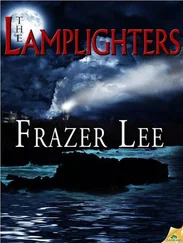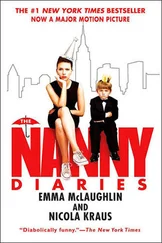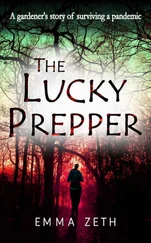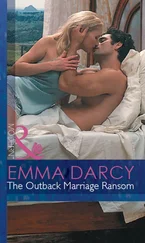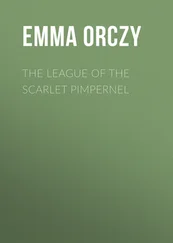The locked door’s an oddity; I’ll give you that. My only thought is that those entrance doors are thick lumps of gunmetal – they have to be to hold up against the battering they get – and they’ll slam on you without any trouble at all. And as for it being bolted from the inside, that’s one of those details that plagues me. But on a lighthouse, you’ve got these heavy iron bars that go across the door to keep it in place, so what I’m thinking is there’s a chance those bars fell when it closed, if it closed with enough force…?
I don’t know. If it sounds daft to you then ask yourself what other reason you’d come up with, then see which one you prefer when you start turning these things over in the middle of the night. The stopped clocks and the locked door and the table being laid, it sets your imagination going, doesn’t it? I look at it practically, though. I’m not a superstitious person. Whoever was on cooking duty that day was probably being organized in setting the table ready for the next meal; there’s a great emphasis on food on a lighthouse and keepers stick to routine like limpets. As for there only being two places, well, perhaps he hadn’t got around to laying the third one yet.
And two clocks going at the same time? That’s peculiar, but not impossible. One of those whispers that gets distorted the more it’s said; some bright spark made it up then one day it’s fact, when it’s not, it’s just an unhelpful person saying hurtful things.
I’d hoped Trident would settle that they’d drowned so there wasn’t this uncertainty for the families, but they never did. In my mind, it’s drowning. I feel lucky I know what it is in my mind because I need that, even if it isn’t made official.
Jenny Walker, Bill’s wife, she wouldn’t say the same. She likes there being no solution. If there were then it would take away any last chance she thinks she has of Bill coming back. I know they’re not coming back. But people deal with things how they want. You can’t say how someone should grieve; it’s very personal and private.
It is a pity, though. What happened to us should have made us come together. Us women. Us wives. Instead, it’s been the opposite. I haven’t seen Jenny since the ten-year anniversary and even on that day, we didn’t speak. We didn’t go near each other. I wish it wasn’t like that, but there we are. It doesn’t stop me trying to change it. I believe people have to share these things. When the worst happens, you can’t bear it alone.
That’s why I’m talking to you. Because you say you’re interested in putting out the truth – and, I suppose, so am I. The truth is that women are important to each other. More important than the men, and that isn’t what you’ll want to hear because this book, like all your others, is about the men, isn’t it? Men are interested in men.
But for me, no, that isn’t the case. Those three left us three behind and I’m interested in what’s left behind. In what we can make of it, if we still can.
As a novelist, I expect you’ll make much of the superstitious aspect. But remember I don’t believe in things like that.
Things like what? Come on now, you’re the writer; you work it out. In all my years I’ve realized there are two kinds of people. The ones who hear a creak in a dark, lonely house, and shut the windows because it must have been the wind. And the ones who hear a creak in a dark, lonely house, light a candle, and go to take a look.
16 Myrtle Rise
West Hill
Bath
Jennifer Walker
Kestle Cottage
Mortehaven
Cornwall
2 June 1992
Dear Jenny,
Some time has passed since my last letter. While I no longer anticipate your reply, I remain optimistic that my words are read. I would like to interpret your silence as peace between us – if not your forgiveness.
I wanted to let you know that I am speaking to Mr Sharp. This isn’t a decision I have taken lightly. Like you, I’ve never disclosed information to outsiders about what happened. Trident House gave us instructions and we followed them.
But I am tired of secrets, Jenny. Twenty years is a long time. I’m growing old. There is much I need to let go of, much I have shouldered in silence, for many reasons, for many years, and I have to share it, at last. I hope you understand.
With my best wishes, as ever, to you and your family, Helen
JENNY
After lunch it started to rain. Jenny hated the rain. She hated the mess it made when the children came in with it dripping wet, especially Hannah with the double pushchair, especially after she’d cleaned and then it was honestly more bother than it was worth.
Where was he, then? Five minutes late. Plain rude, she thought, turning up late to see someone who hadn’t even asked to meet you in the first place. She’d only agreed to it because of Helen, because she wasn’t having Helen Black saying things about her that weren’t true – or that were true – and having them all put down in a book for the world to see. He was famous, apparently. That didn’t impress her. Jenny didn’t read books. Fortune and Destiny twice monthly did her fine.
No doubt this man expected her to roll out the red carpet. It didn’t matter if he was late, because being posh and well-off he could behave how he liked. Now he’d trample soggy shoes right through the house. Jenny found it awkward asking visitors to take their shoes off; they should know to do it without having to be asked.
She was in the mindset now of hating the rain. All those years of thinking Bill’s relief was going to get put off and it would be even longer before she saw him again. In the days running up to him coming home she used to get fixated on the weather, worried it was going to change so the boat wouldn’t be able to go out there and get him, and the more she watched, the more the weather had seemed to change, just to spite her. They’d planned to move to Spain when Bill retired, buy a place in the south with what little they’d saved, a swimming pool and clay pots on the patio and pink flowers round the door, and the children would come out for holidays. Jenny was better in the sun; the rain made her mood go downhill, and the rain in England lasted for months and months, it was so depressing. She’d have been fine if they’d made it to Spain, warmth on their bones, Brandy Alexanders as the sun went down. Whenever it rained these days, it reminded her that would never happen.
Helen’s letter languished in the bin. Jenny ought to rip the envelopes up before she opened them. Every time one dropped through the letterbox, she told herself, I’ll set a match to it, I’ll tear it into pieces, I’ll stuff it down the drain.
But she never did. Her sister said it brought her closer to Bill, having Helen’s letters to read, because they were a link to her missing husband whether she despised that link or not. Helen’s letters were proof that it had been real. Jenny had been married to him once; they had been in love. It had been good. It hadn’t been a dream.
The telly in the living room blacked out on an episode of Murder, She Wrote . Jenny pushed herself up off the settee and gave it a whack. The picture returned: the protagonist was hiding in a wardrobe from a gunman. She thought, I could do that; I could get in a cupboard and pretend I’m not home. But this Dan Sharp would be here any minute. If she didn’t talk to him, there was no telling what lies that cow had up her sleeve. Even though Jenny had read all sorts of rubbish about the Maiden Rock over the years and knew to take it all with a great big bucket of salt, she still considered it her duty to care. Whenever she saw a story in the paper she had to call in and speak to whoever was responsible, so she could have her say and put them right. It was like a member of her family that she had to stand up for.
Читать дальше


